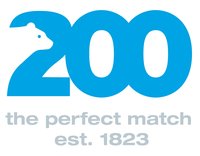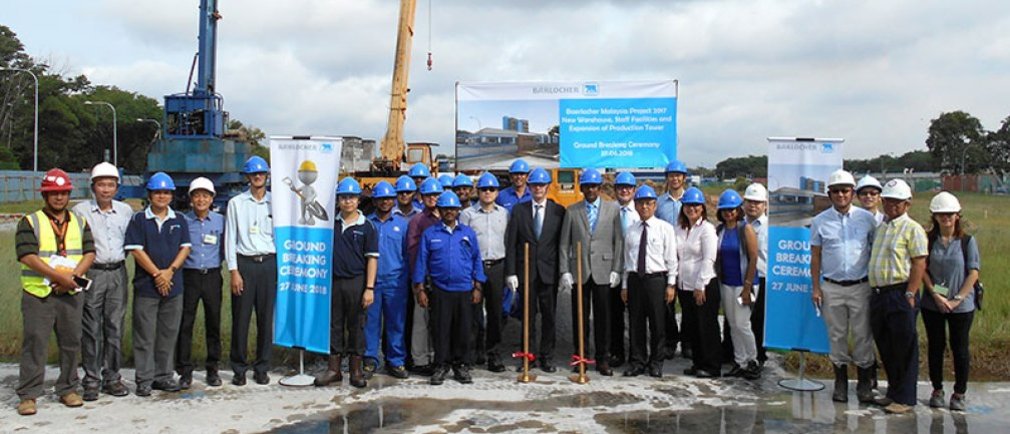Reliability and an unaffected, culturally diverse team – Baerlocher Malaysia not only connects worlds, but has been opening up exciting markets since 1992 at the latest. Because from Seremban, Baerlocher ventured its first steps into Southeast Asia on a greenfield site - with continuing success.
All of Asia comes together in Malaysia. The most diverse cultures and religions, many holidays and festivals. "Basically, we celebrate everything – Ramadan, Chinese New Year, Diwali," smiles Managing Director Sethu Palaniappan. As diverse as the local cultural conditions are, the markets supplied from here – Malaysia itself is a rather small market – are equally dazzling. Sethu Palaniappan explains: "With the exception of China and India, our market includes Bangladesh, Sri Lanka, Pakistan, Taiwan, Australia, New Zealand and the Middle East. We are selling to Korea. 90 per cent of the plant’s production is meant for the export market." It is therefore not surprising that Malaysia was selected as the hub for Baerlocher’s business in Southeast Asia and the Asia Pacific region as part of the company’s expansion plans, where the company has been represented by its own sales company in Singapore since 1988. It therefore was decided in 1992 to establish a site in the Taman Tuanku Ja’afar Industrial Estate in Seremban, a two-hour drive from Kuala Lumpur – the Malaysian capital – was picked as the site for the new foreign plant. At the time, the Malaysia plant, which was built in a record 18 months, was Baerlocher’s largest foreign investment. The plant began production in 1994, well ahead of the planned opening date. This reliability is typical: "We finish in time. We finish in cost," emphasizes Sethu Palaniappan.
A wise investment
The decision to establish a plant in Malaysia proved to be an excellent one. Today, Baerlocher Malaysia has a production capacity of 50,000 tons, up five-fold from when it was initially set up. Even way back in 1998, it was clear that the Malaysia plant was set for success. That year, two German employees reported that: "The external appearance is excellent, the whole company makes an absolutely clean, well-organized and tidy impression." These words still ring true. Whether it is from a production, technical or research and development standpoint, Baerlocher Malaysia continues to make a good impression. Today, the plant has expanded from 40 employees in 1998 to 170 employees, and Palaniappan has watched Baerlocher Malaysia grow from strength to strength. Palaniappan, who launched his career at Baerlocher Malaysia in 1998 at the height of the Asian financial crisis, recalls that his decision to join the relatively new plant in the middle of an economic downturn was not without risk. It was a decision he does not regret. Coincidentally, January 14 – the date he joined the company – commemorates “Ponggal”, the harvest festival celebrated by Malaysia’s Tamil community. “Ponggal” marks new beginnings and a hopeful future – a fitting start for a new endeavor.
Palaniappan credits the success of Baerlocher Malaysia, in part, to teamwork and the company’s culture of openness. The Malaysia plant is multicultural with Malaysia’s three major races well represented here. “Employees work side by side with colleagues from other Asian nations like Singapore, Thailand, Vietnam, Indonesia, Nepal and Bangladesh,” he enthuses. Because of this diversity, there is a strong bond among employees who see themselves as one big family. At Baerlocher, every employee regardless of their position, is rewarded fairly based on the company’s performance. This, according to Palaniappan, may be one of the reasons why Baerlocher Malaysia has above-average employee retention rates – unusual for an Asian company. Forging long-lasting relationships, whether with employees or customers, is something Baerlocher Malaysia is invested in.
A history of relationships and milestones
Baerlocher Malaysia also focuses on fostering long-term relationships with its customers and partners, always innovating and coming up with solutions to meet their expectations. "It never gets boring here. Every two years we have a new milestone," says Sethu Palaniappan with satisfaction.
Because what began in 1994 with a small two-stream production of PVC stabilizers and special additives is now a 360-degree undertaking. Since 1999, BAEROPOL One-Packs for the polyolefin industry have been produced in Seremban. One year later, metal stearates were added to the portfolio. These were followed by One-Packs for PVC stabilizers in powder and granulate form in 2002, and calcium-based stabilizers in 2006.
Product variants go through rigorous testing and customer-specific processes are simulated at the plant’s laboratory, also for other members of the Baerlocher family. In 2009, Baerlocher Malaysia added another feather to its cap – one of its biggest achievements to date. Palaniappan and his team created the blueprint for China’s first Baerlocher plant, a project financed by the Malaysia operations. To this day, Baerlocher China and Baerlocher Malaysia are legally linked, even though the Chinese sister has long since stood on its own two feet.
Looking ahead and staying relevant although the industry is competitive and not without its challenges, Palaniappan is confident of Baerlocher Malaysia’s growth. With investments in new lines, a 6000-square-metre solar-powered warehouse, and a brand-new administration building, Baerlocher Malaysia is prepared to meet higher demand. “It’s a growing market that’s highly competitive. To remain relevant, we have to be close to our markets,” he said adding that this was the reason the company relied on local distributors to service its markets in countries like Thailand, Vietnam and Bangladesh. After all, “local in presence and thought” is a Baerlocher credo, one which Palaniappan and his team have successfully embraced.












